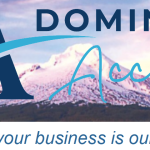Brand Story – The deadline to claim tax credits under the Families First Coronavirus Response Act (FFCRA) is on the horizon: What self-employed business owners, 1099 contractors & gig workers need to know.
At Dominguez Accounting, we pride ourselves on providing accurate and up-to-date information on tax laws that may impact local businesses and individuals. This is why we are offering clarification regarding the Families First Coronavirus Response Act (FFCRA). We want to ensure that those who are eligible for a refund have the information they need to file before the statute of limitations expires.
With filing deadlines approaching, a considerable number of people who were self-employed or worked as 1099 contractors/gig workers in 2020-2021 are still owed a refund from the IRS. Many who qualify for these tax credits have not filed due to confusion around the complex calculations and eligibility requirements under the Families First Coronavirus Response Act (FFCRA) and other programs created and subsequently modified by multiple pieces of legislation passed during that time.
With this in mind, Dominguez Accounting is offering FREE consultations for business owners, self-employed individuals and 1099 contractors. While general clarification is offered in this article, our free consultation will allow us to personally walk you through the FFCRA eligibility requirements, discuss the FFCRA and other available tax credits in detail, and explain how they may apply to your specific situation.
Schedule your free consultation online at www.dominguezaccounting.com, or call (503) 509-9817 or para Español tele (503) 509-2093.
What is the FFCRA?
The Families First Coronavirus Response Act (FFCRA) was passed and signed into law March 18, 2020.
This law provided tax credits for employers with up to 500 employees who paid COVID-related sick leave and extended family medical leave between April 1, 2020 and September 30, 2021. What many people don’t know is that this law has special provisions for self-employed individuals and 1099 contractors/gig workers, such as Uber drivers, hair stylists, sub-contractors, truck drivers, etc.
Who is eligible for tax credits under the FFCRA?
The FFCRA applies to self-employed individuals and 1099 contractors who carry on any trade or business that qualifies as self-employment income within the guidelines of section 1402 of the Internal Revenue Code; AND are eligible to receive qualified sick or family leave wages under the Emergency Paid Sick
Leave Act or the Emergency Family Medical Leave Expansion Act. Self-employed individuals with up to 500 employees that incurred certain costs of providing employees with paid sick leave and extended family medical leave for reasons related to COVID-19 during the eligible period may also qualify for the FFCRA.
Self-employed individuals and 1099 contractors can claim up to 10 days (80 hours) at 100% of their average daily earnings with a cap of $511 per day for eligible COVID-related sick leave taken between April 1, 2020 and March 31, 2021, as well as an additional 10 days (80 hours) for eligible COVID-related sick leave taken between April 1, 2021 and September 30, 2021. Additionally, those who were unable to work or telework while caring for a family member or child due to school closures and/or medical necessity with documentation from a medical provider, can claim up to $200 per day for up to ten weeks (50 days) of leave taken during April 1, 2020 and March 31, 2021, and for up to twelve weeks (60 days) of leave taken between April 2021 through September 30, 2021. In total, the max allowable credit for self-employed individuals and 1099 contractors is $32,220.00, representing $15,110 for April 1,2020 through March 31, 2021 and $17,110.00 for April 1, 2021, through September 30, 2021.
Small business owners with 1-500 employees may be eligible for additional credits under the FFCRA for sick and extended family leave paid to employees; and those with W-2 employees may qualify for up to $26,000 per employee under The Employee Retention Credit (ERC). These credits are NOT loans, they do not need to be paid back, and do not have restrictions on the use of funds. Credits under the FFCRA and ERC are refunds of money already paid to the IRS. We discussed the ERC in detail in last month’s digital edition of Oregon Business, linked HERE. The FFCRA is available to self-employed individuals, 1099 contractors and small business owners with less than 500 total employees, while the ERC is only available to employers with 1-500 W-2 employees.
The exact credit amount depends on several variables, including total number of eligible sick and/or extended family leave days claimed by the 1099 contractor or self-employed individual, and average daily income calculated in accordance with IRS guidelines using data from previously filed returns. Additional credits for employers are dependent on expenses incurred for COVID-related paid sick or extended family leave taken by eligible employees during April 1, 2020 and September 30, 2021.
As filing deadlines approach, Dominguez Accounting is offering FREE, no obligation consultations for small business owners, self-employed individuals and 1099 contractors to determine eligibility for the FFCRA, ERC and other tax credits.
Why the confusion?
As with many laws passed during this time, there was a great deal of confusion around the eligibility parameters, calculations, and filing process. Compounding this confusion was the sheer number of programs created during the same time frame, and the way each program was subsequently altered by multiple pieces of legislation.
The COVID-Related Tax Relief Act of 2020 and the American Rescue Plan Act of 2021 amended the FFCRA after its inception. These changes extended the eligibility period and expanded qualification requirements, making the credits available to many who did not qualify under the original legislation. Initially, the eligible period under the FFCRA was April 1, 2020-December 31, 2020, however, these subsequent changes in legislation extended the eligible period twice; initially to March 31, 2021 and then to September 30, 2021. The most recent legislation reflects the eligibility window as April 1, 2020-September 30, 2021.
Another source of confusion was the ways in which qualified individuals could obtain funds under the FFCRA. When the credits were initially made available, it would have been necessary to claim those credits in routine tax filings for 2020-2021. In anticipation of receiving these credits, eligible employers had the option to recover qualified leave wages, allocable qualified health plan expenses, and the Eligible Employerʼs share of Medicare tax for qualified leave wages paid between April 1, 2020-March 31, 2021, by accessing funds that would have otherwise been withheld and deposited with the IRS. Those who did not have sufficient funds withheld, were able to request an advance of the credits from the IRS. At this juncture, the only way to claim these credits is to file amended returns for 2020-2021.
Unfortunately, many self-employed individuals and 1099 contractors were not aware of the availability of these credits when filing at that time. This means that those who were self-employed or worked as a 1099 contractor or gig-worker in 2020-2021, could still be owed a refund from the IRS. Fortunately, there is still time to file before the statute of limitations expires. The statute of limitations for 2020 expires in 2024, and for 2021 expires in 2025. Unless you file before the statute of limitations expires, the opportunity to pursue this refund will be lost.
What should self-employed individuals, 1099 contractors and gig-workers do next?
The filing deadline is approaching, so it is essential to find out if you qualify, and if so, to file as soon as possible. The calculations are complex. The best way to find out if you are eligible is to work with a qualified accounting professional.
At Dominguez Accounting, we offer free consultations for small business owners, self-employed individuals, 1099 contractors and gig-workers. While general clarification is offered in this article, our free consultation will allow us to personally walk you through the eligibility requirements, discuss the FFCRA and other available tax credits in detail, and explain how they may apply to your business specifically.
As a family-owned and operated business, we pride ourselves on providing top-notch service to our clients. We will be there for you throughout the filing process and beyond, with full-service audit support at no additional cost to our clients. Every return filed with the IRS is reviewed by Connie L. Dominguez, MBA Accounting, IRS Enrolled Agent, Licensed Tax Consultant and Owner of Dominguez Accounting. “Where your business is our priority.”
Schedule your free consultation online at www.dominguezaccounting.com, or by phone at (503) 509-9817 or para Español tele (503) 509-2093.
Thank you for choosing Dominguez Accounting: “Where your business is our priority.”

MBA- Acc, IRS Enrolled Agent
Licensed Tax Consultant, License #1922509-C
Owner, Dominguez Accounting
[email protected]
(503) 509-9817 English
(503) 509-2093 Español

Brand stories are paid content articles that allow Oregon Business advertisers to share news about their organizations and engage with readers on business and public policy issues. The stories are produced in house by the Oregon Business marketing department. For more information, contact associate publisher Courtney Kutzman.




